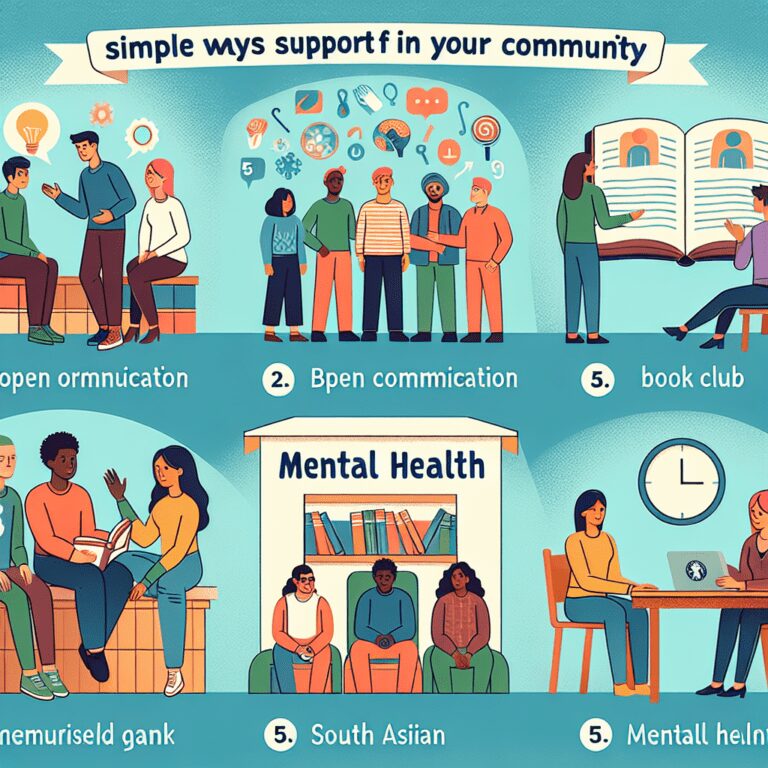
Navigating the Storm: Expert Strategies for Supporting a Loved One with Mental Illness
Navigating the complexities of mental illness can feel like sailing a ship through a tempestuous sea. As a caregiver, friend, or family member, you may often feel lost in the waters of uncertainty, frustration, and heartbreak. The person you love is struggling with challenges that seem insurmountable, and you want to be their anchor, but where do you start? In this blog post, we’ll explore effective strategies for supporting a loved one with mental illness, drawn from both personal experience and professional insights.
Chapter 1: Understanding Mental Illness
Understanding is the first step in effectively supporting someone with mental illness. The term encompasses a wide range of disorders, including depression, anxiety, bipolar disorder, schizophrenia, and more. Each condition has its unique symptoms and challenges, and it’s essential to approach each with empathy and a willingness to learn.
Education is power. Familiarize yourself with the specific illness your loved one is facing. Look for reputable sources such as the National Institute of Mental Health or mental health charities that provide insight into different conditions. This knowledge will help you understand your loved one’s experiences and feelings better.
Chapter 2: Open Lines of Communication
Creating a supportive environment around mental illness begins with communication. However, talking about mental health can be challenging due to stigma and fear. Approach the conversation with compassion and an open mind, listening more than you speak.
Ask open-ended questions, avoiding judgements or assumptions. Phrases like, “I’m here for you” or “Can you tell me more about what you’re feeling?” encourage sharing. Remember, it’s vital to be patient; it might take time for your loved one to articulate their feelings.
Chapter 3: Encouraging Professional Help
While friends and family play a crucial role in support, facilitating professional help is equally important. Encourage your loved one to seek therapy or counseling if they haven’t already. Discuss the benefits openly and positively, dispelling the myths surrounding mental health professionals.
Understanding the different types of therapy can also be helpful; some people may gravitate toward cognitive-behavioral therapy (CBT), while others may find comfort in holistic or alternative treatment methods. Offer to help them research therapists or even accompany them to an appointment for moral support.
Chapter 4: Establishing Routine and Structure
Life with mental illness can often feel chaotic. Establishing a routine provides a sense of stability and predictability that many people crave. Encourage daily structures, such as set meal times, regular sleep patterns, and dedicated time for work and leisure.
However, be mindful of not overwhelming your loved one; start small. Perhaps you could suggest a short daily walk or a weekly coffee outing. Gradually introduce more activities as they become comfortable.
Chapter 5: Coping Strategies for You
Supporting a loved one can take a toll on your mental and emotional health. It’s crucial to remember that your well-being matters too. Develop coping strategies to balance your emotional load.
Consider practices such as mindfulness, journaling, or seeking peer support groups. These avenues provide a space to process your feelings and share experiences with others in similar situations.
Chapter 6: Promoting Healthy Habits
Physical health impacts mental health significantly. Engage your loved one in discussions about a healthy lifestyle, including nutrition, exercise, and sleep hygiene.
Cooking healthy meals together can be both nourishing and a bonding experience. As for exercise, find fun activities you can do together; it could be yoga, hiking, or a simple neighborhood stroll. The goal isn’t to become fitness fanatics but to foster a supportive environment that encourages well-being.
Chapter 7: Recognizing Warning Signs
As you journey alongside your loved one, it’s vital to recognize the signs that may indicate a worsening of their condition. Be attentive to changes in mood, behavior, or routines.
Educate yourself about the specific warning signs associated with your loved one’s mental illness. For instance, if they have depression, watch for increased withdrawal or talk of hopelessness. If applicable, create a safety plan together, outlining actionable steps if they feel overwhelmed.
Chapter 8: Celebrating Progress and Setbacks
Recovery is rarely linear. Celebrate the small victories and progress, whether that’s stepping outside, attending a therapy session, or simply having a good day. These milestones are crucial for maintaining hope and motivation.
Conversely, it’s essential to recognize setbacks without judgment. These moments are part of the journey. Being there for your loved one during tough times conveys your unwavering support and love, reinforcing that they’re not alone in the storm.
Conclusion
Supporting a loved one with mental illness is undeniably challenging. However, by arming yourself with understanding, communication, and practical strategies, you can sail through the storm together. Remember, you are not just providing support; you are also fostering a healing relationship built on trust, empathy, and love. Your effort to navigate through the complexities of mental health not only helps your loved one but can also yield growth and understanding within yourself.
FAQs
1. What should I do if my loved one refuses help?
It’s vital to approach the situation with empathy. Keep the lines of communication open, gently encouraging them to consider support without forcing it upon them. Sometimes providing resources or information can help them feel more at ease.
2. How can I take care of my mental health while supporting someone else?
Prioritize self-care by engaging in activities you enjoy, seeking support from friends or professionals, and allowing yourself time to rest. Understanding that you are doing your best is crucial.
3. What resources are available to help caregivers?
There are many resources available, including organizations that specialize in mental health, support groups for caregivers, and community services. Online forums can also offer a sense of community and shared experience.
4. How can I help my loved one during a crisis?
Stay calm and listen to them without judgment. If necessary, call for emergency help, and ensure there is a safe space for them to express their feelings. Create a crisis plan beforehand if possible.
5. Is it okay to set boundaries?
Absolutely. Setting boundaries is essential for your own well-being and can help establish a healthy relationship dynamic. Communication about these boundaries is key.
6. How can I encourage my loved one to connect with others?
Gently suggest group activities or classes that align with their interests. You could even join them to reduce anxiety about social situations.
7. What if my loved one experiences a relapse?
Remind them that relapses can be part of the recovery process. Encourage them to reach out for support, whether it’s professional help or you as a caregiver.
8. Can I really make a difference in their recovery?
Absolutely. Your support, understanding, and love can significantly impact their journey. Just being present and showing you care is already a powerful tool in the healing process.
Disclaimer: I may earn a commission from qualifying purchases as an affiliate. Please note that I only recommend products I believe will provide value to my readers. (M)







